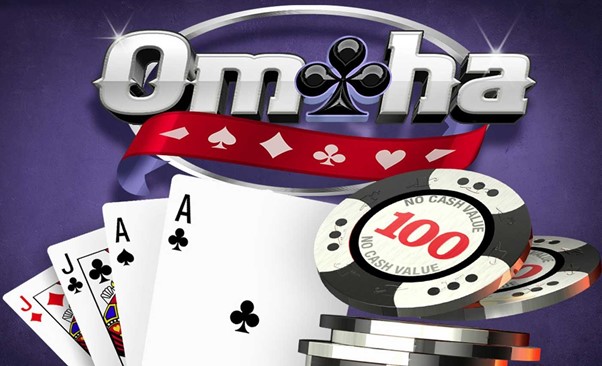Rankings of Omaha Poker Hands – Poker is a game that’s constantly evolving. While Texas Hold’em is the reigning favorite in the poker world, another exciting variant, Omaha, has been gaining popularity fast! Though Omaha has been around nearly as long as Texas Hold’em, it’s only recently started to get the attention it deserves. With more players embracing the game, it’s showing up more often in tournaments, cash games, and online poker rooms worldwide.
Here, we’ll break down the hand rankings for Omaha poker, covering both Omaha High Only and Omaha High/Low. Understanding these rankings is crucial to mastering Omaha, so let’s get into it.

Omaha Poker Hand Rankings
Below are hand rankings for the two main types of Omaha poker: Omaha High Only and Omaha High/Low. We’ll start with Omaha High Only, then dive into the rankings for Omaha High/Low.
Omaha High Only Hand Rankings
In Omaha High Only, the aim is to make the best high hand. With everyone playing for a high hand only, having the “nuts” (the best possible hand) is essential. Here’s what you should know about the best and worst hands in Omaha High Only.
Best Hands: Omaha High Only
- Suited Aces: Starting with an ace of any suit is always strong in Omaha, but a suited ace is ideal. It offers the potential for a high flush, which is often a winning hand.
- All Face Cards: Hands with high cards like kings, queens, and jacks offer strong potential for straights or high pairs, both of which can be crucial in Omaha. Just be cautious if you make a lower straight and proceed carefully if there are higher possible straights in play.
- Large Pairs: Unlike in Texas Hold’em, flopping a low set in Omaha can be risky, as it’s more likely someone else has a higher set or will draw out. Aim for hands with larger pairs that have a better chance of flopping the top set and securing the pot.
Worst Hands: Omaha High Only
- Small Flush Draws: Flushes are tricky in Omaha, and small flushes are even worse. These hands may look promising but often end up being costly since they can easily lose to higher flushes.
- Small Pairs: While flopping a set is always exciting, small pairs often lead to trouble in Omaha. You may hit a set, but if there are higher sets or full houses possible, you’re in a risky spot. Proceed with caution.
- Out of Position: Position matters more in Omaha than in many other poker games. Avoid playing weaker hands out of position, as it limits your control and visibility of the action. Instead, tighten up your range when you’re early to act.
Omaha High/Low Hand Rankings
In Omaha High/Low (also known as Omaha 8 or Better), the pot is split between the best high hand and the best qualifying low hand (with the low hand needing to be an 8 or lower to qualify). Ideally, you want to play for hands that can win both the high and low parts of the pot, giving you a chance to scoop.
Best Hands: Omaha High/Low
- Suited Ace/Deuce: This is a goldmine in Omaha High/Low, as it offers the best potential for both the nut low (if a qualifying low is possible) and a flush. Always worth playing, suited Ace/Deuce hands are valuable in nearly all situations.
- Three or Four to a Wheel: Having three or four cards to a wheel (cards that can create an ace-to-five straight) is ideal for scoop potential, especially if you’re holding combinations like A-2-3-4. This setup offers excellent chances for both the high and low sides of the pot.
- All Low Cards with Double Suits: A hand with small, suited cards offers you flush potential on the high side and a strong chance at a low. Aim for cards 8 and below, as hands with these cards increase your chances of winning both halves of the pot.
Worst Hands: Omaha High/Low
- Weak Low Hands with Hangers: Hangers are cards that don’t fit with the rest of your hand. For example, a hand with an Ace, Deuce, Three, and Nine has a “hanger” in the Nine. Avoid hands with hangers as they reduce your chances of winning both sides of the pot.
- Hands with Multiple Eights or Nines: Eights and nines are generally weak cards in Omaha High/Low, as they can’t contribute to a low and rarely make a winning high. Hands heavy on eights and nines usually don’t have enough potential to win the pot, so fold these whenever possible.
- Out of Position: Position is crucial in Omaha High/Low. Playing hands from an early position limits the amount of information you have when making decisions. Stick to playing strong hands in an early position, and try to only play speculative hands when you’re in a later position.
Conclusion
In Omaha poker, every variation requires a unique approach to hand selection and strategy. Omaha High Only focuses entirely on making the best high hand, while Omaha High/Low splits the pot, adding the additional goal of creating a qualifying low hand. Knowing which hands to prioritize and which to avoid is key to winning in Omaha poker. So, whether you’re chasing the nuts or aiming to scoop in Omaha High/Low, go in with a solid understanding of hand rankings, and you’ll be ready to take on the table!
